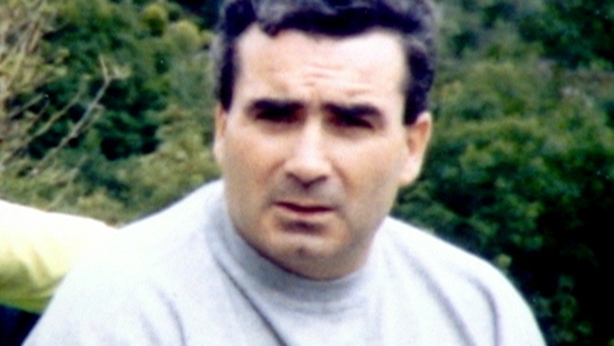The head of an inquiry that spent more than seven years investigating the activities of a man believed to have been the highest ranking British military agent within the IRA has asked the British government for permission to officially name him.
Freddie Scappaticci, a former Belfast bricklayer, has been widely named as the agent codenamed Stakeknife.
The agent has been linked to 14 murders and 15 abductions while working for the British Army within the IRA.
An interim Operation Kenova report into his activities published in March did not confirm Stakeknife's identity.
PSNI Chief Constable Jon Boutcher, who commanded the team for most of the investigation, said at the time that he could not do so because of a policy called NCND, meaning Neither Confirm Nor Deny.
The mechanism is used to protect sensitive information and applies where secrecy is deemed to be necessary, in the public interest and where the policy would avoid the risks of damage that a confirmation or denial would create.
The failure to state officially what journalists and many others have been saying for a number of years was met with widespread criticism and was viewed as undermining the credibility of the report.
The current head of Operation Kenova is now seeking UK government permission to publicly identify the agent in its final report, which is due to be published early next year.

Iain Livingstone has made the request in writing to Northern Ireland Secretary of State Hilary Benn.
In a letter sent on Wednesday, Mr Livingstone said he is seeking permission to "confirm the true identity of the agent known as Stakeknife".
"I believe the blanket application of NCND in legacy cases has the potential to undermine public confidence and add to the grief of families of victims in certain cases," he added.
"I understand from Cabinet Office colleagues that a review of NCND is under consideration.
"An update on progress of this work and HMG's current view would be very helpful."
The letter also asks for confirmation about whether the British government will acknowledge and apologise to Stakeknife's victims, which was one of the Operation Kenova report's ten recommendations.
"I understand from Cabinet Office colleagues that, given there are number of civil cases that are outstanding, it is not considered appropriate to make an apology at this time," Mr Livingstone said.
"I would, however, be grateful to receive confirmation of HMG's position regarding this recommendation."
It also seeks clarification of the UK government's position on a recommendation to designate 21 June, the longest day of the year, as an official day to remember those lost, injured or harmed as a result of the Troubles.







